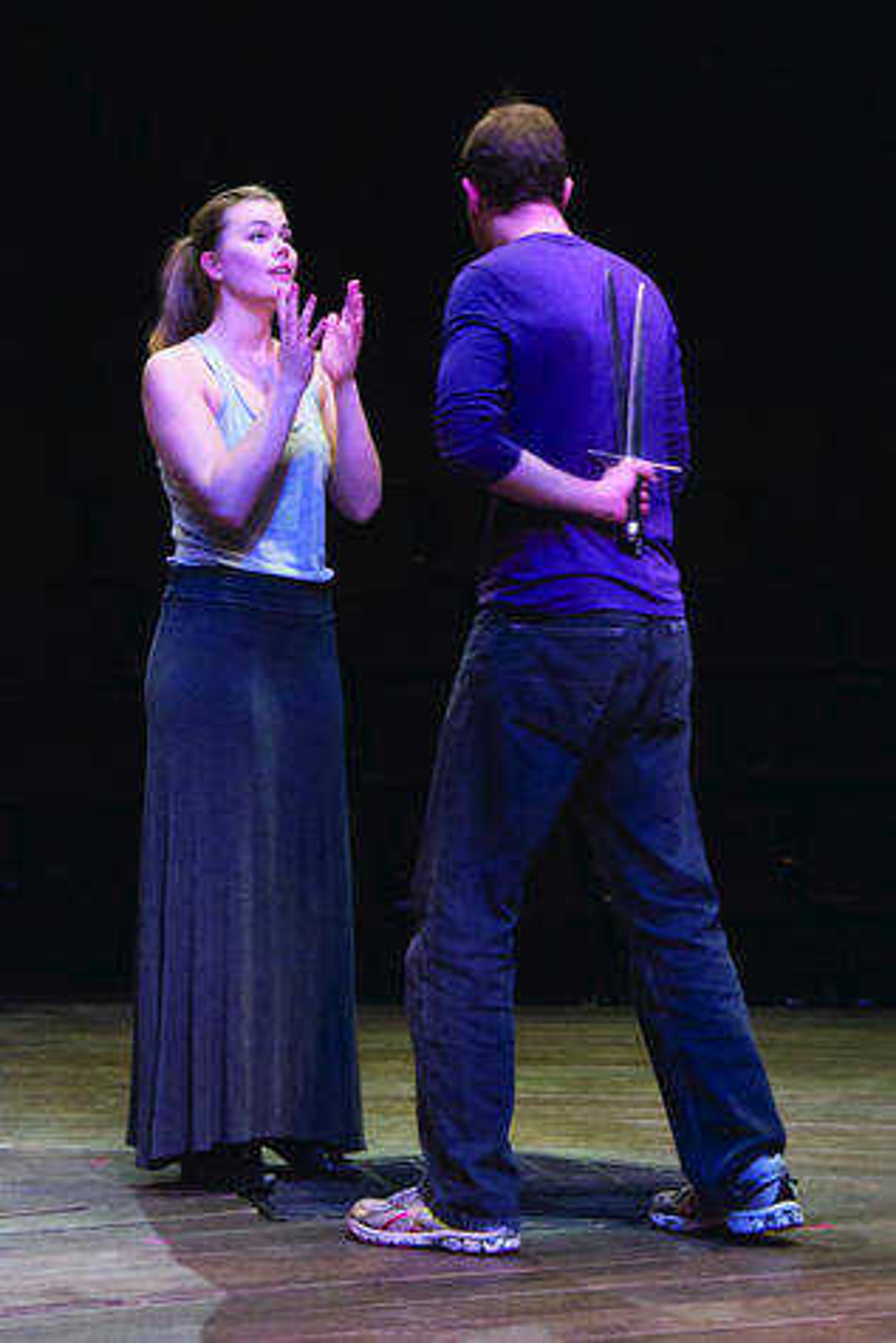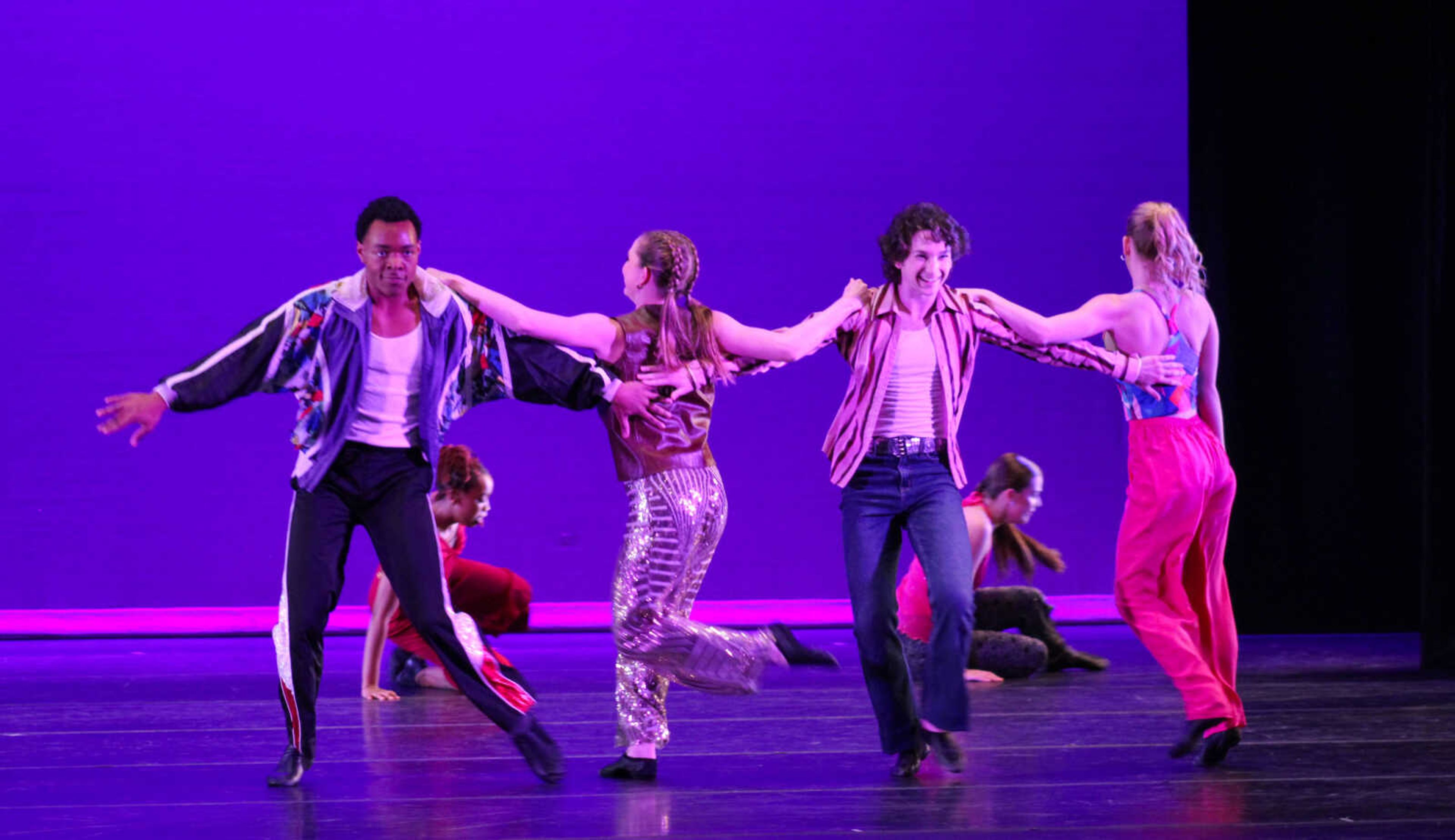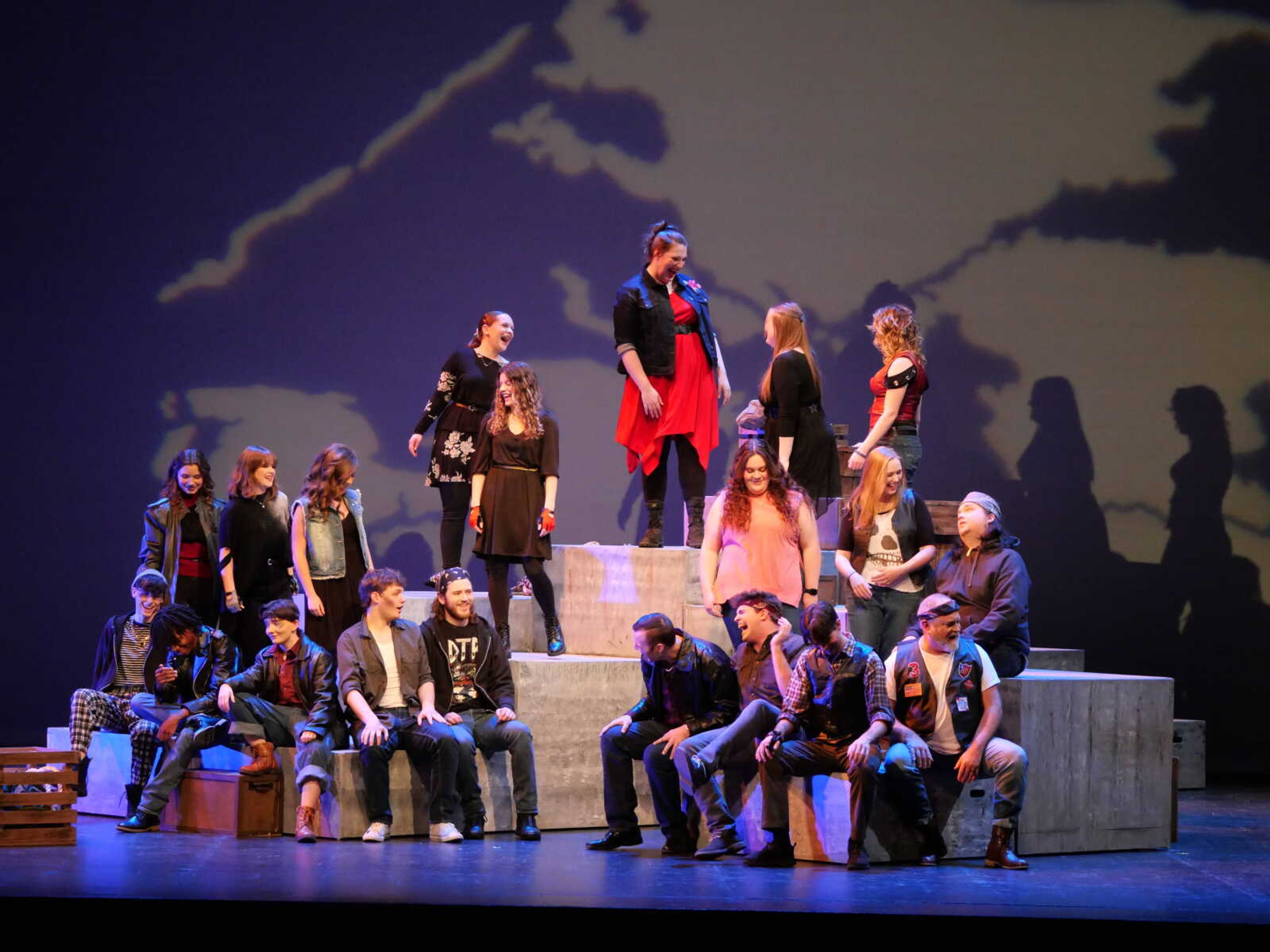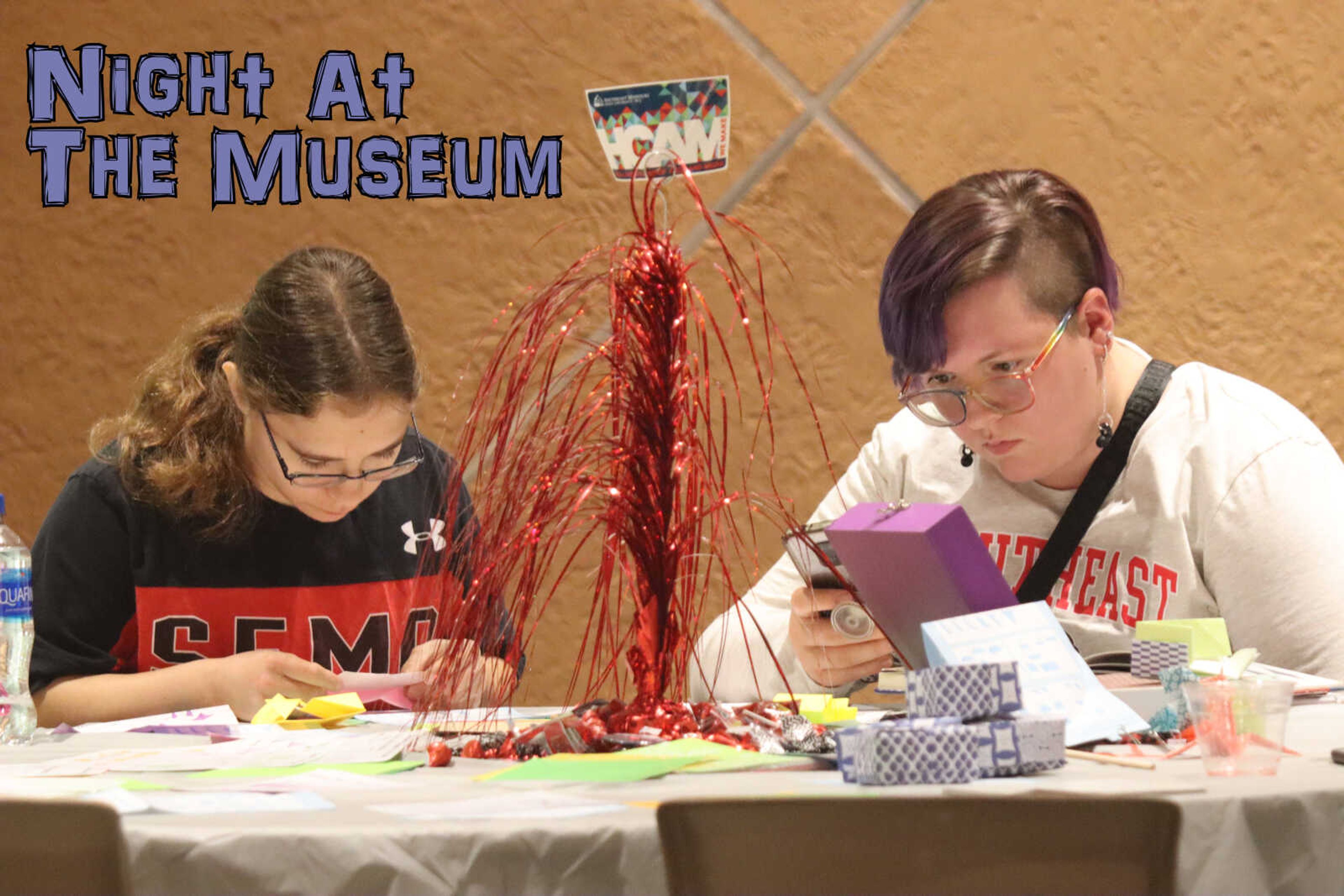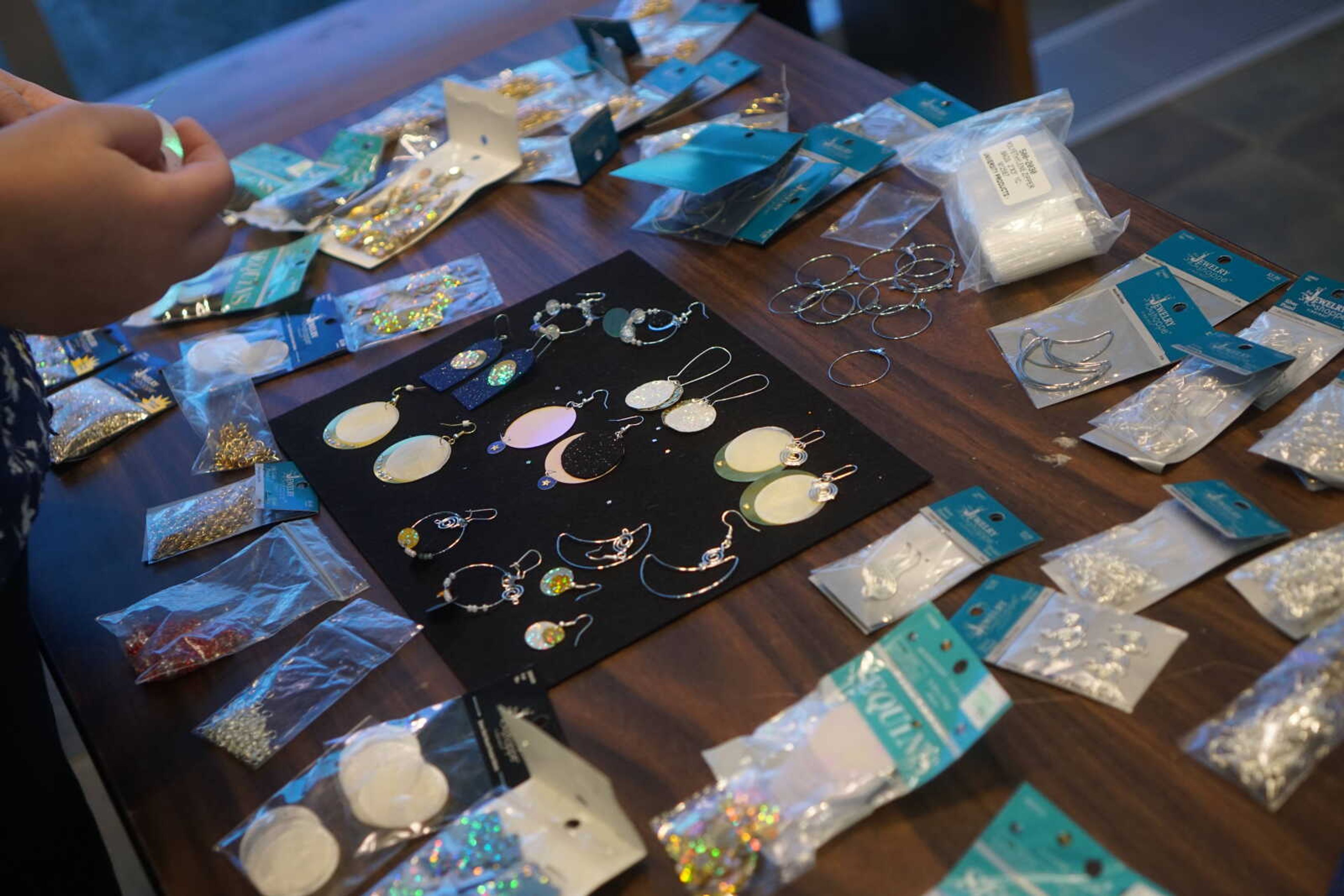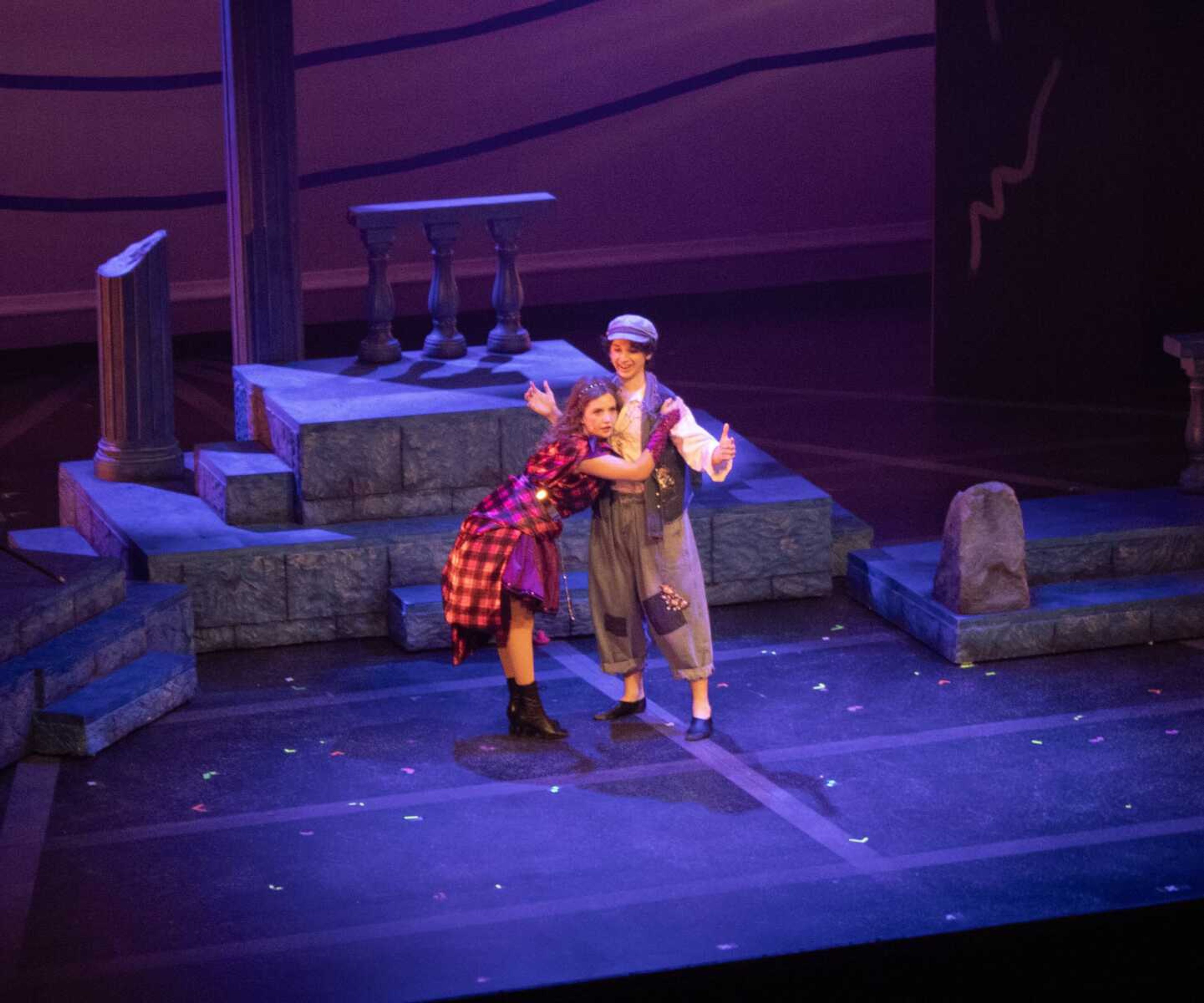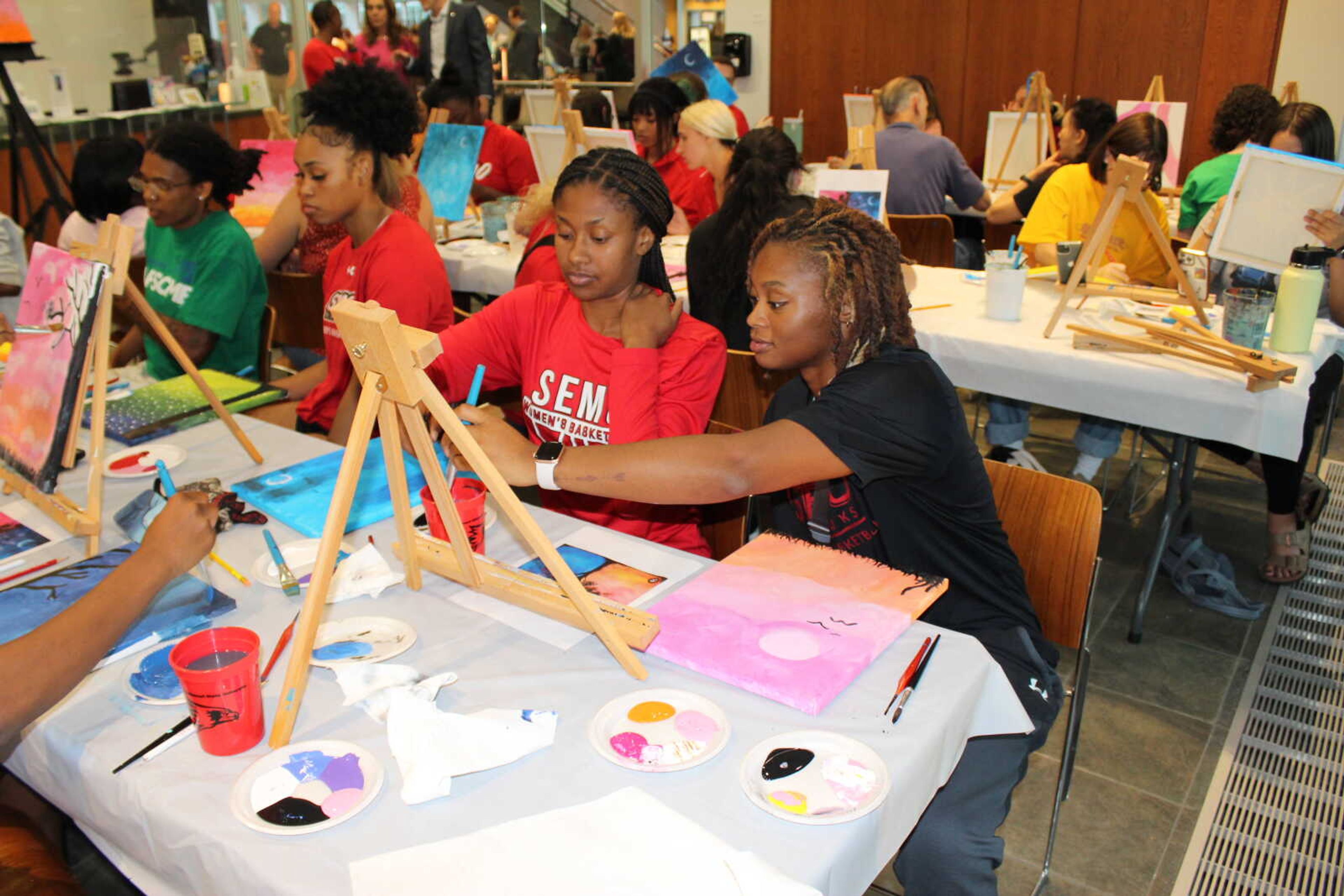Before a second run-through of only one of numerous fight scenes in Shakespeare's tragedy "Macbeth," a duel between Macbeth and Young Siward, director Bart Williams paused to give advice to the two actors.
"It's not about hacking your way through this," he said. "It's about trying to tell the story."
This isn't the first time Williams has put on a performance of Macbeth. He said his first direction of the play was when he was still in graduate school, the first of any Shakespeare he had done in fact. He used these previous experiences as a foundation to help bring to life the Department of Theatre and Dance's production of the same work at Southeast Missouri State University's River Campus.
"What most attracts me is the fact that this is stylistically so much different than all the other tragedies," Williams said. "It's at such a quick pace. ... It's a tricky play because a lot of people really want to explore a subtext in it, and this play really doesn't allow you to do that, in a good way."
Williams said the department chooses a classic for one of the main stage plays each year in order to provide students with the familiarity of a "heightened language play." In the fall of 2013, the River Campus held a production of Tennessee Williams' "Orpheus Descending" that fit this classification.
More than a classic for those studying acting, "Macbeth's" set design was strictly a student creation, according to Williams. The design was inspired by one of John Napier's done in 1976 at the Royal Shakespeare Company, though Williams said they also brought in elements from the original construction of the Globe Theatre.
This added to Williams' goal in keeping to the initial script, how Shakespeare himself wanted his play to be perceived.
"I tried to go back to the First Folio, that's the first and foremost thing, which is the original put-together published version of the play, and to actually tell the story as best I could without doing that many cuts," Williams said. "To try and just get back to, not original practices, but really just to kind of look at what the company did. So we don't have a lot of scene breaks. We've got a lot of detailed scenes back and forth."
With the "heightened language" of a classic, Williams and the actors matched in saying the Shakespearean language has been the largest hurdle to overcome throughout the rehearsal process. Williams focused solely on an introduction to the verse in the first weeks of rehearsal. The actors also have worked outside of rehearsals with Roxanne Wellington, an assistant professor in acting and voice at Southeast and verse coach for the production, to perfect the diction and understanding of what they're communicating.
"That's normally the biggest obstacle," freshman Jose Alpizar, who plays the part of Macduff, said. "Once I found out that I was cast, I was like, 'Oh god, this language.' That's what dreads both college and high schoolers alike, you know. But like I said, it was a huge benefit to have our first rehearsals be the read-through because if it weren't for that initial read-through I wouldn't have any idea what I'm saying probably. Because through that read-through was where Bart really tore down the Elizabethan language and he just tore it apart to pieces that you can understand individually, and it just made it a lot easier to understand. After that, honestly, after that initial read-through, there wasn't really much -- it just wasn't as daunting, I guess, and then you just had to get used to the language."
Still, the read-through itself was no easy task.
"It took us like four nights to get through the whole script," Mason Brown, who plays the lead of Macbeth, said.
Brown and Hannah Brake, acting as Lady Macbeth, said they still found connection to their characters despite the period of the piece and morbid plotline.
"For Lady Macbeth, she's very, very ambitious, like once she even finds something that's like a hint of a possibility, she's like, 'Oh, this is what I'm going to do,'" Brake said. "Like god, that is terrifying. But I feel like, yeah, I'm pretty ambitious I think. Also, no one really knows exactly who she is. I mean, even her husband, he's the closest to her, but she always has a mask up, you know. I feel like everyone has masks up that they hide their true feelings behind. ... You know, everyone hides things."
The two said after working through "chemistry building exercises" they found that working well on stage together boiled down to completely putting trust into one another and mutually committing to the scene.
"When I found out you [Brake] were cast as Lady Macbeth, I was like, 'There is nobody else who could be Lady Macbeth like you could be,'" Brown said.
"You can say something good about me later if you want," he jokingly added.
"Oh, maybe," Brake said.
The bloodiest of Shakespeare's tragedies next to "Titus Andronicus," it's no coincidence performances of "Macbeth" will be held around Halloween.
Performances are listed at 7:30 p.m. Oct. 30-Nov. 1 and Nov. 6-8 along with a 2 p.m. showing on Nov. 9 in the Wendy Kurka Rust Flexible Theatre at the River Campus. There are two matinee performances scheduled for high school students from around the Cape Girardeau area to attend as well.
Tickets are $16 for general admission and, on presentation of a Southeast ID, $3 for students. To purchase tickets, contact the River Campus Box Office weekdays from 9 a.m. to 4 p.m. at (573) 651-2265 or by going online to RiverCampusEvents.com.
